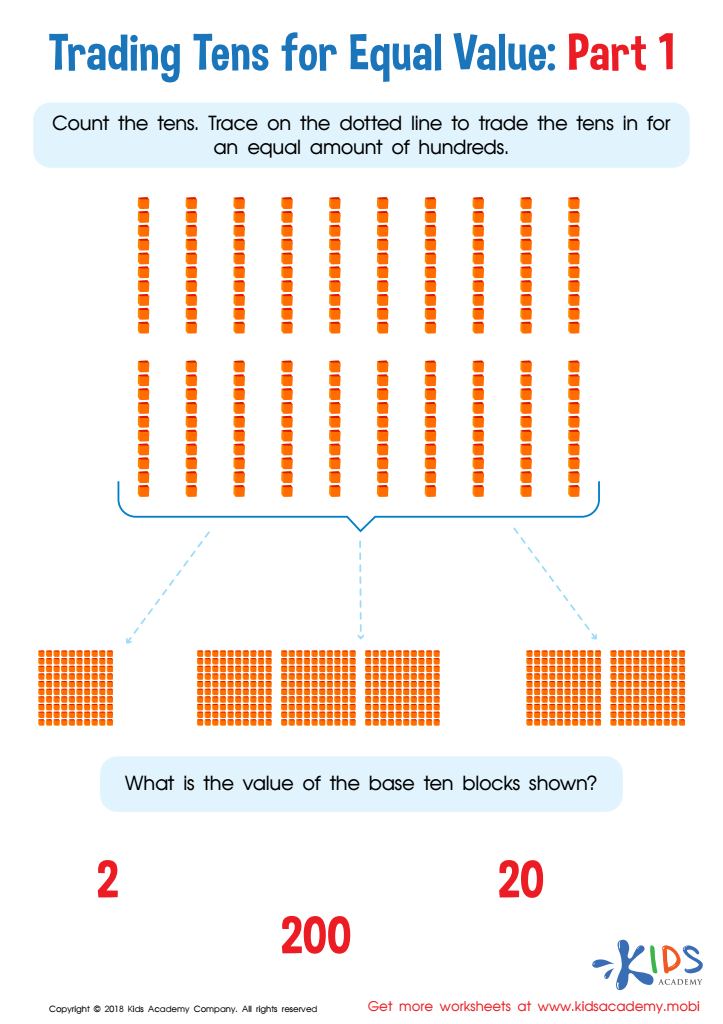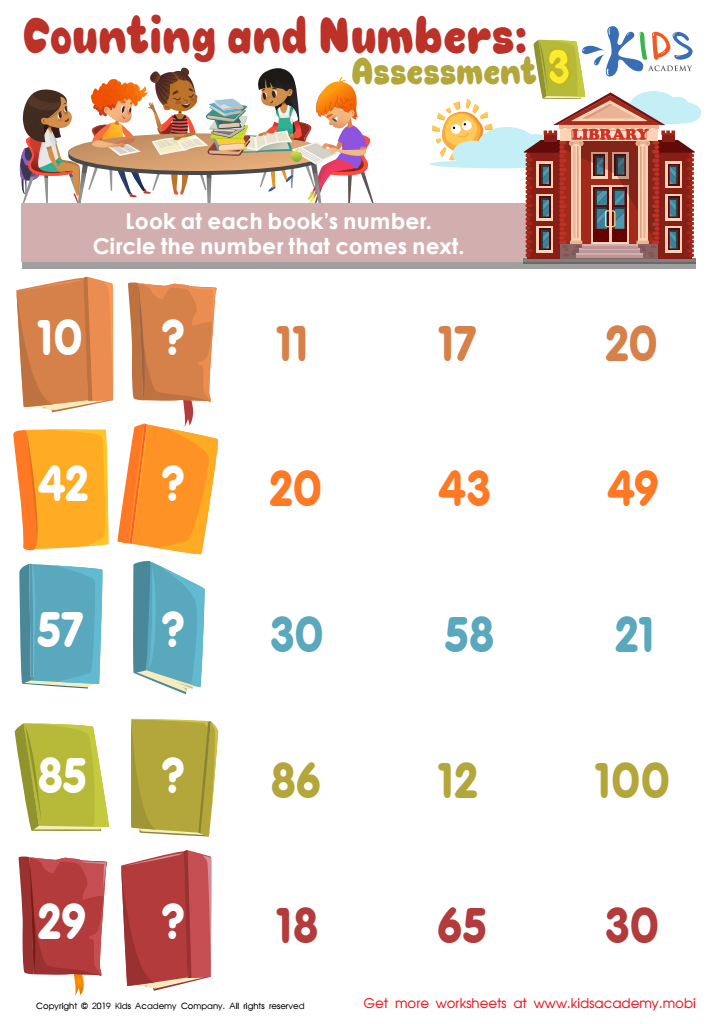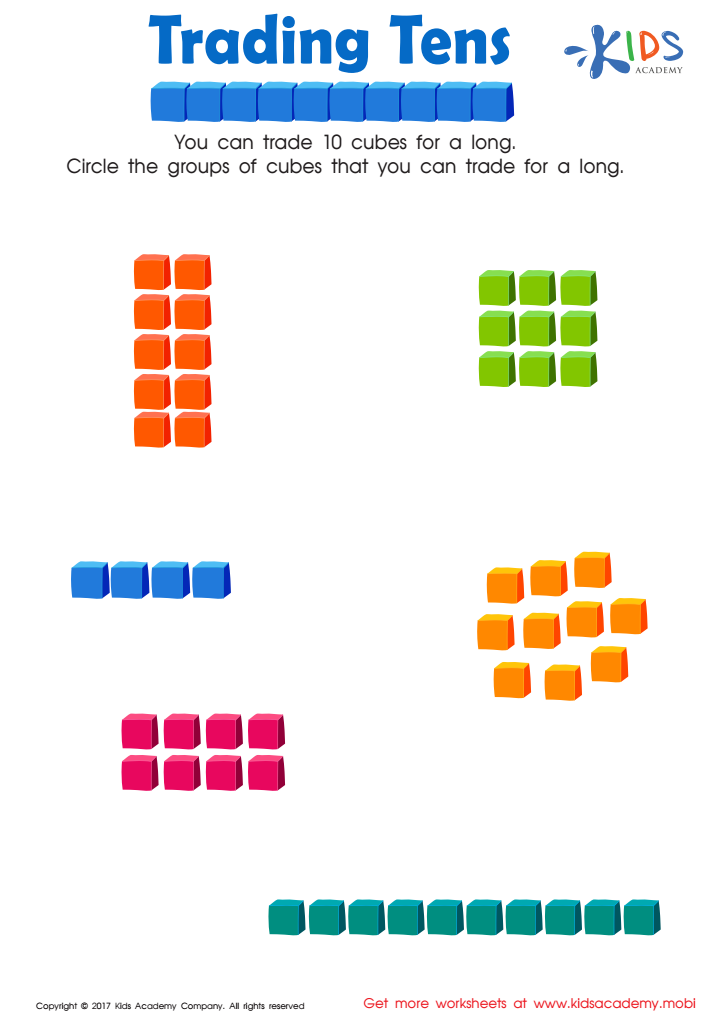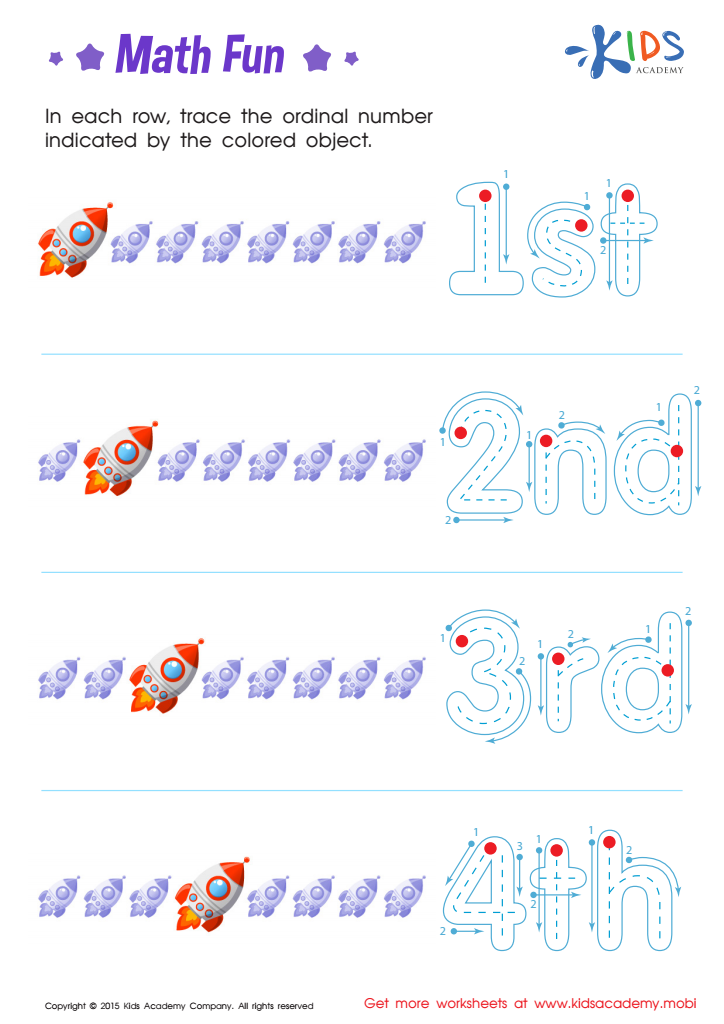Learning addition Numbers Worksheets for Ages 4-8
4 filtered results
-
From - To
Discover our engaging Learning Addition Numbers Worksheets, designed for children aged 4-8. These interactive worksheets provide a fun and effective way to help young learners grasp essential addition skills. With colorful visuals and age-appropriate exercises, children will enjoy practicing their math abilities while building a solid foundation for future learning. Our comprehensive resources include a variety of activities that foster critical thinking and problem-solving skills. Perfect for both classroom and home settings, our worksheets make mastering addition enjoyable and easy. Empower your child’s mathematical journey today with our unique and stimulating addition practice worksheets!


Trading Tens for Equal Value Worksheet: Part 1


Counting and Numbers: Assessment Worksheet


Trading Tens Worksheet


Ordinal Numbers: Math Fun Worksheet
Teaching addition to children aged 4-8 is crucial for several reasons. This foundational skill not only enhances mathematical understanding but also supports cognitive development and problem-solving abilities. At this age, children are naturally curious and capable of grasping basic concepts, making it an ideal time to introduce addition.
Firstly, mastery of addition leads to a solid base for more complex math skills like subtraction, multiplication, and division. Early learners who understand addition are more likely to excel in future math-related tasks. Additionally, learning addition fosters critical thinking and logical reasoning, skills that are valuable in all areas of life.
Moreover, addition helps children develop their social and emotional skills through collaborative games and activities. It contributes to confidence building; as they succeed in solving addition problems, their self-esteem grows. Teachers and parents play an instrumental role by providing engaging and age-appropriate activities that make learning fun.
Finally, instilling a love for math at a young age encourages long-term academic success. Through fun games, stories, and real-life applications, both parents and teachers can inspire an enthusiasm for learning. Ultimately, caring about children's early math education ensures they build the necessary skills for a bright and successful future.
 Assign to My Students
Assign to My Students















